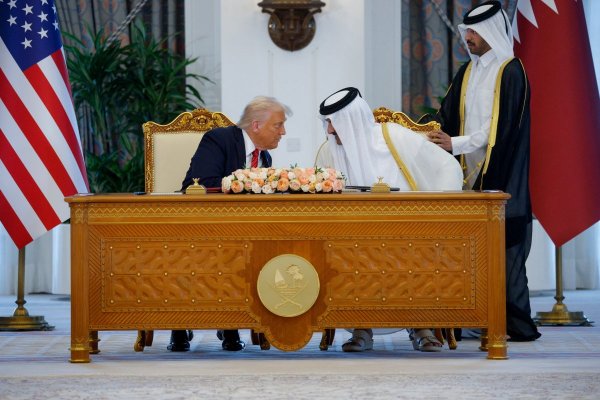DF Conexión a China | 50 años: del comercio a las inversiones
Mauricio Benítez Córdova Director International BDO, Profesor Titular USACH
Se dice que toda política china tiene como duración unos 50 años, lo que justamente coincide con el aniversario del inicio de nuestras relaciones diplomáticas con el gigante asiático. En la cultura china, lo que proyectan hoy entregará beneficios a sus nietos, entonces, ¿qué pasará en las próximas cinco décadas? El hito que cumplimos este mes nos pone una meta: proyectar cómo será el próximo medio siglo de relaciones bilaterales con el principal socio comercial, y ahora primer inversionista exterior en Chile.

La relación comenzó con el comercio de productos y servicios. Importaciones desde China han caracterizado nuestros negocios internacionales, un sinfín de productos se confeccionan allá, considerada como la fábrica del mucho por muchos años. Por contrapartida, sobre todo estos últimos años, el consumidor chino ha gozado de nuestros productos, especialmente agroalimentarios, y de nuestra gran minería y cobre, más aún luego del TLC que rige desde 2006.
Ello dio paso a las inversiones, que se han incrementado desde 2017. El Convenio para Evitar la Doble Tributación Internacional fue clave para esto, ya que permitió operaciones transfronterizas más eficientes de inversión, y con menores costos tributarios. La reciente inversión de casi US$ 3.000 millones de la estatal china State Grid Corporation en la eléctrica CGE ha sido muy destacada.
Sin embargo, ha habido una polarización de puntos de vista rsobre la relación entre Chile y China. Hemos escuchado expresiones que van desde que “los chinos nos quieren invadir”, a que seremos una nueva Australia, sufriendo bloqueos y represalias si no seguimos la política de Beijing. Lo cierto es que los números no mienten: nuestra dependencia respecto de China se ha acrecentado, y muchas de las dudas y cuestionamientos pueden deberse al desconocimiento de la cultura y la forma de hacer negocios del gigante, que incomodan a muchos chilenos.
Debemos preguntarnos qué pasará con nuestros exportadores y emprendedores en el futuro, porque se sigue proyectando una gran exportación de bienes y servicios a China, y por muchos años. Mal que mal, más del 30% de las exportaciones chilenas tienen tal destino, y nuestras compañías y emprendimientos seguirán pensando en hacer negocios con China. Irremediablemente, por tanto, deberemos contar con una política y estrategia para construir los 50 años que vienen, en un siglo de cambios acelerados.
Por supuesto que habrá más socios comerciales, pero la relación con China continuará, más estrecha y más compleja, con consecuencias para nuestros nietos y biznietos, chinos como chilenos. Es tiempo de proyectar los próximos cinco decenios y de imaginar dónde estaremos cuando se cumpla un siglo de relaciones entre nuestros países, en orillas opuestas del Pacífico.
50 years: from trade to investment
Mauricio Benítez Córdova
International Director at BDO, faculty professor at Universidad Santiago de Chile
It is said that every Chinese policy lasts about 50 years, which coincides with the anniversary of the beginning of our diplomatic relations with the Asian giant. In Chinese culture, what they project today will deliver benefits to their grandchildren, so what will happen in the next five decades? The milestone we reached this month sets a goal: to project what the next half century of bilateral relations with Chile's main trading partner, and now first foreign investor, will be like.
The relationship began with trade in products and services. Imports from China —considered the "world's factory" for many years— have characterized our international exchange. On the other hand, especially in recent years, Chinese consumers have benefited from our products, especially in the food industry, and our large mining and copper industry, even more so with the FTA that has been in force since 2006.
This trade gave way to investments, which have increased since 2017. The Agreement to Avoid International Double Taxation was key to this, as it allowed for more efficient cross-border investment operations, with lower tax costs. The recent investment of almost US$ 3 billion by China's state-owned State Grid Corporation in the CGE power plant has been very noteworthy.
However, there has been a polarization of views on the relationship between Chile and China. We have heard expressions that range from "the Chinese want to invade us", to warnings that we will be a new Australia, suffering blockades and reprisals if we do not follow Beijing's policy. However, numbers do not lie: our dependence on China has increased, and many of the doubts and questions may be due to poor knowledge of their culture and way of doing business, which make many Chileans uncomfortable.
We must ask ourselves what will happen to our exporters and entrepreneurs in the future, because large exports of goods and services to China are projected to continue rising for many years to come. After all, more than 30% of Chilean exports end up in China, and our companies and entrepreneurs will continue to think about doing business there. Therefore, we will have to have a policy and strategy to build on the next 50 years, in this century of rapid and radical change.
Of course we'll have other trade partners, but the relationship with China will continue, ever closer and more complex, with consequences for our grandchildren and great-grandchildren, Chinese as well as Chilean. It is time to think ahead, to the next five decades, and to imagine where we will be by the time our countries, on opposite shores of the Pacific, celebrate 100 years of diplomatic relations.

 Instagram
Instagram Facebook
Facebook LinkedIn
LinkedIn YouTube
YouTube TikTok
TikTok















